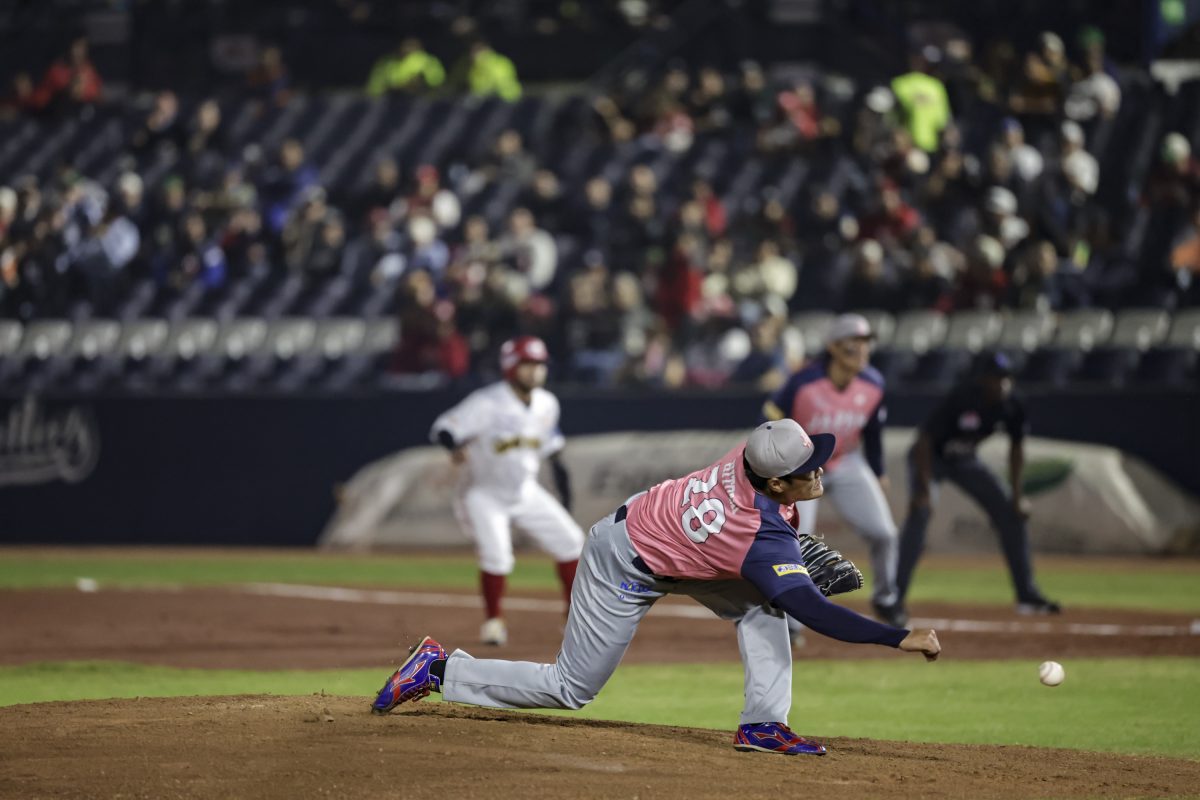



Their time at the 2025 Caribbean Series over, the Japan Breeze will leave with only a damn good case of the Mexicali blues.
It was a novel idea: A team of Japanese players with experience in their minor leagues and industrial leagues — and Munenori Kawasaki, a former Major Leaguer best known for his love of bananas — traveling across the Pacific and playing in the Caribbean Series.
But somewhere along the way to El Nido de las Aguilas, an old line scouts love to roll out may have gotten lost in translation: There are no secrets in baseball. Meaning: If a guy can play at the professional level, scouts have identified him.
When I first heard the Japan Breeze would be playing in the 2025 Caribbean Series, I was intrigued. After all, Japan has been ranked No. 1 in the WBSC’s World Baseball Rankings since 2018. Samurai Japan won the 2023 World Baseball Classic, their third title at that event, and the 2023 Olympics, which were played in Tokyo.
Granted, the Caribbean Series is not Major League Baseball, nor is it the World Baseball Classic. But this is a professional event with professional players, many of whom are current or former MLB players, and most have experience at the Triple-A level.
In preparation for their appearance in Mexicali, the Breeze were the opposition at the Liga Venezolana de Beisbol Profesional All-Star Game, and put a respectable team on the field, falling 3-1 at Estadio La Rinconada in Caracas.
Before coming to Mexicali, I looked up every player on the Breeze roster and couldn’t find information on the majority of them. They were truly something of a mystery.
With a soft desert breeze blowing in Mexicali, their Caribbean Series debut didn’t go nearly as well as the LVBP All-Star Game.
Facing the Dominican Republic’s Leones del Escogido in their Caribbean Series, who put MLB veteran Johnny Cueto on the mound, Breeze manager Alex Ramirez, a former MLB and Nippon Professional Baseball player who is in the Japanese Baseball Hall of Fame, countered with Shuto Sakurai, who had 55 games of experience in NPB’s top league with the Yokohama DeNA BayStars and Tohoku Rakuten Golden Eagles.
Sakurai lasted three innings, allowing four runs in a disastrous third where two of his pitches reached the backstop, including one that hit the grass in front of the plate, and another was completely missed by catcher Yamato Sato. When the D.R. got runners on, they turned the diamond into a track meet, stealing bases at will on Sato and the infielders, who were outmatched by their speed. They ended up losing the game 12-3.
Their starter in their finale against Venezuela’s Cardenales de Lara, a game that saw Jesus Sanchez throw eight innings of no-hit ball before former MLBer Alexi Amarista’s two-run homer brought the game to it’s merciful mercy rule end early by the score of 10-0, had an even worse outing than Sakurai, giving up five runs on three hits and two walks over 1/3 of an inning. The submariner had difficulty finding the plate, and when he did, he got hit hard. His Caribbean Series ERA? 135.00. And yes, you read that right.
When the Breeze’s trip to the Caribbean Series was over, they had a record of 0-4 and were outscored 32-5 over the four games during round robin play. The lone game they were in, the 3-2 loss to Puerto Rico, was a game where they played above their mean ability and perhaps Puerto Rico played down to their level.
“We, the team, did not lose, we won. We won a lot more than we lost,” Alex Ramirez said in Spanish after the Breeze were eliminated. “In the game, you win and you lose, that’s part of the game. I think that we, our players, taught something that had not been seen in the Caribbean.”
The Breeze aren’t the only invitee to come to a Caribbean Series and go winless. It happened last year in Miami, when Nicaragua’s Gigantes de Rivas went 0-6, and was similarly the victim of a no-hitter thrown by Venezuela’s Angel Padron.
But Nicaragua was at least competitive, losing by a single run to the Dominican Republic’s Tigres del Licey, who eventually reached the final, and suffering three-run losses to the Criollos de Caguas of Puerto Rico, Mexico’s Naranjeros de Hermosillo, and Panama’s Federales de Chiriqui.
In 2023 in Caracas and La Guaira, Venezuela, Cuba’s Agricultores, the champions of the Cuban Elite League, went 1-6, and while they were outscored 49-23 over six games, but if you discount the 20-3 loss at the hands of the Leones del Caracas, who finished second in the event, the run differential is far more respectable. They, like Nicaragua, were at least competitive.
“I think that the team needs to be upgraded. Thirty or forty percent of the players need to be upgraded. That’s the new thing that we have,” Breeze manager Alex Ramirez said following their final game.
“Once we get back to Japan, we have to start getting new players for the next competition. There’s nothing we can do about this series. We’re very happy because of the way the fans treated us and we’re very… we appreciate everything and this great opportunity.”
Japan may be back to the Caribbean Series next year in Caracas. Hopefully, Japan will be more competitive, though it remains unknown who will organize their team and where the players will come from.
But regardless of who organizes Japan’s next foray into the Caribbean Series, they’d be wise to remember that there are no secrets in baseball.
The Japan Breeze just proved that.
Photo: Japan Breeze starter Kenta Hitomi lasted just 1/3 of an inning, allowing five earned runs on three hits and two walks in a 10-0 no-hit loss to Venezuela. (Photo courtesy of CBPC)